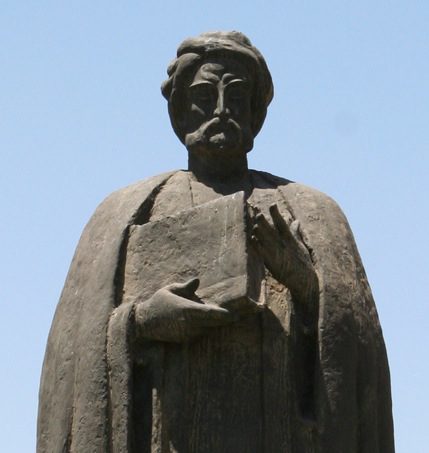
(Wikimedia Commons public domain image)
One of the world’s greatest social theorists and philosophers of history was the Tunisian scholar Ibn Khaldun (1332-1406), who, although he had no immediate followers or disciples and was not recognized as the genius he was for centuries after his death (and, even then, at first only by European orientalists), is often considered the founder of such disciplines as sociology. In other words, this comment of his could have been made about himself:
“He who finds a new path is a pathfinder, even if the trail has to be found again by others; and he who walks far ahead of his contemporaries is a leader, even though centuries pass before he is recognized as such.”
Here are several passages from his great Muqaddima (“Prolegomenon” or “Introduction” — that is, the Introduction to his world history):
“Throughout history many nations have suffered a physical defeat, but that has never marked the end of a nation. But when a nation has become the victim of a psychological defeat, then that marks the end of a nation.”
“At the beginning of a dynasty, taxation yields a large revenue from small assessments. At the end of the dynasty, taxation yields a small revenue from large assessments.”
“When incentive to acquire and obtain property is gone, people no longer make efforts to acquire any… Those who infringe upon property rights commit an injustice… If this occurs repeatedly, all incentives to cultural enterprise are destroyed and they cease utterly to make an effort. This leads to destruction and ruin of civilization.”
“In the case of all human qualities, the extremes are reprehensible, and the middle road is praiseworthy.”
“[T]he purpose of human beings is not only their worldly welfare. This entire world is trifling and futile. It ends in death and annihilation. The purpose of human beings is their religion, which leads them to happiness in the other world.”
“If the soul is impartial in receiving information, it devotes to that information the share of critical investigation the information deserves, and its truth or untruth thus becomes clear. However, if the soul is infected with partisanship for a particular opinion or sect, it accepts without a moment’s hesitation the information that is agreeable to it. Prejudice and partisanship obscure the critical faculty and preclude critical investigation. The result is that falsehoods are accepted and transmitted.”












